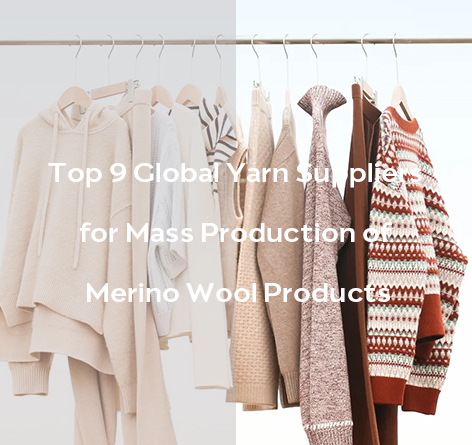Importance of providing inventory
For small businesses and start-ups, having access to a large amount of inventory is critical. These enterprises often do not have sufficient resources and capital to carry out large-scale production or bulk purchasing. Therefore, relying on the large inventory provided by clothing manufacturers has become an effective way for them to rapidly expand the scale of their business.
First, large inventories allow companies to be more flexible in meeting market demand. They have the flexibility to adjust the order volume according to market trends and customer needs without having to worry about insufficient inventory or excessive backlogs. This flexibility allows companies to better respond to market changes and seize sales opportunities.
Second, large inventories help companies reduce costs. Usually, garment manufacturers will offer more competitive prices based on the volume of orders. By purchasing in bulk, enterprises can get more discounts, thereby reducing production costs and improving profit margins. This is crucial for small businesses and start-ups as they need to stay competitive in the fierce market competition.
Large inventories can also speed up the time to market. Enterprises do not need to wait for the production cycle, can directly choose the right products from the inventory, quickly put on the market to meet the needs of consumers. This kind of quick response ability can help enterprises take the lead in the competitive market and win more market share.
Services provided
In addition to providing a large amount of inventory, clothing manufacturers offer a range of services to small businesses and start-ups to meet their business needs.
First, they usually offer customized production services. According to the needs and requirements of customers, manufacturers can customize the design, production and packaging of clothing products. This kind of customized service can help enterprises create a unique brand image, differentiate themselves and attract more consumers.
Second, garment manufacturers also provide supporting supply chain management services. They can help companies manage the supply chain, including raw material procurement, production planning, logistics and transportation. This service can help companies manage production processes more efficiently, reduce operational risks, and ensure timely delivery of products.
In addition, clothing manufacturers often provide marketing support and branding services. They can assist enterprises to develop marketing strategies, design advertising materials, and even participate in the cooperation of online and offline sales channels to help enterprises expand market share and enhance brand awareness.
To sum up, garment manufacturers not only provide a lot of inventory, but also support small businesses and start-ups through a range of services. Their presence and services not only simplify the production process of enterprises and reduce costs, but also help enterprises better cope with market challenges and achieve business growth and development.
Comparison of domestic and international suppliers
In the context of globalization, enterprises are faced with the choice between domestic and international suppliers when choosing suppliers. Comparing the advantages and disadvantages of cooperation with domestic suppliers and international suppliers, we can better decide the cooperation plan that best suits the needs of enterprises.
Working with domestic suppliers can often reduce transportation costs. Because domestic suppliers are located relatively close to the enterprise, the transportation distance is short, so the transportation cost is relatively low. In addition, the domestic logistics network is more developed, choose the right mode of transport, such as land transport or rail transport, can also effectively reduce costs.
Domestic suppliers are usually able to provide more consistent product quality. Because of the cooperation with domestic suppliers, it is easier for enterprises to grasp the production process and quality control standards of suppliers. At the same time, for products with quality problems, enterprises can more easily carry out after-sales processing or refund, to ensure that product quality meets standards.
Working with international suppliers may extend shipping times. Since international transport involves crossing national borders, it may take longer to transport products. Especially in the case of sea or air transport, the transit time may be longer due to procedures such as customs clearance.
Working with international suppliers, businesses may face inventory availability challenges. Due to the uncertainty of international transportation, as well as possible logistics delays or loss of goods, the inventory may be unstable. This can affect production plans and supply chain stability.
By comparing the advantages and disadvantages of cooperation with domestic and international suppliers, enterprises can more comprehensively evaluate cooperation options and make the best choice according to their needs and circumstances. In practice, some companies may choose hybrid supply chain management, taking into account the advantages of domestic and international suppliers, in order to balance cost, quality and supply chain stability considerations.
Ways to find clothing manufacturers
By entering relevant keywords in the Google search engine, such as “garment manufacturer”, “garment foundry”, you can get a lot of supplier information. With the advantage of Google search, you can quickly obtain the website links, contact information and customer reviews of various manufacturers, which provides convenience for further screening
Manufacturer directory websites such as Alibaba, Made-in-China and others provide a large amount of manufacturer information. These sites often have search filtering functions that can filter suitable suppliers based on product type, geographical location, production capacity and other conditions. The advantage of the manufacturer directory is its rich database and classification, which can more accurately locate the suppliers that meet the needs.
Personal preference is an important consideration when choosing a supplier. This includes considerations such as the supplier’s credibility, professionalism, and fit with your corporate culture and philosophy. For example, if you focus on environmental protection and sustainability, then choosing a supplier with environmental awareness and practices may be more in line with your values.
In addition to personal preference, cost-effectiveness is one of the key factors in choosing the best supplier. When considering cost-effectiveness, it is necessary to consider factors such as manufacturing costs, quality assurance, and delivery time. Sometimes, the choice of low-cost suppliers may reduce product quality or lead to delivery delays, thus affecting the corporate image and market competitiveness. Therefore, it is necessary to choose the most cost-effective supplier by considering price, quality and delivery time.




